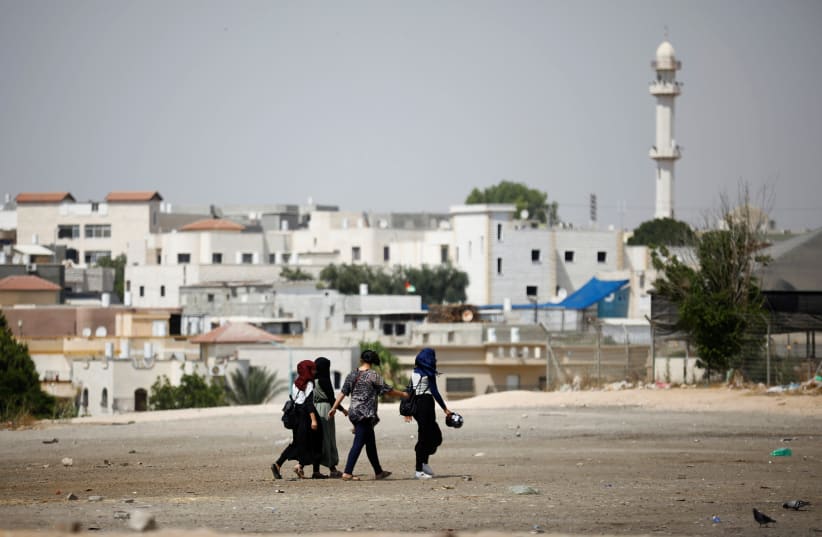Local and national authorities met Tuesday and had joint discussions about forming a five-year plan for Israel’s Bedouin sector, involving a variety of social issues.
Dozens of participants, including officials from government ministries, local authorities, community leaders, influential people and social organizations, worked in four teams to tackle issues concerning the economy and industry, education, local government and community.
The discussions will be ongoing for about six months. An additional team – made up of women – discussed all of the topics and moved between the teams and gave insights into all the fields.
The teams discussed the degree of involvement of local government, and there were two days to discuss municipal and communal needs.
Economy Minister Amir Peretz stated that the program addresses reforms in education, employment, infrastructure, welfare, and personal security for residents.
“Unfortunately, despite considerable achievements in the current plan, the gaps in the quality of life between the Bedouin society in the Negev and the rest of society in Israel have remained high by all indices,” said Peretz. “Therefore, it is a national obligation to work to reduce the gaps, increase and streamline government investment from early childhood and throughout all ages for integration in quality employment.”
Michal Fink, deputy director-general of Strategy and Policy Planning at the Economy Ministry, leads the entire project.
“At this conference, we [launched] a precedent-setting process of co-creating, with the participation of the Bedouin community in formulating the recommendations for the program,” said Fink.
For the first time, starting from the planning stage, the process is “carried out, in collaboration with the Bedouin society, from the perception that the knowledge needed to understand the problems and the accuracy of the solutions is among the community itself, and that local authorities and leadership are the cornerstones of improving Bedouin society,” added Fink.
